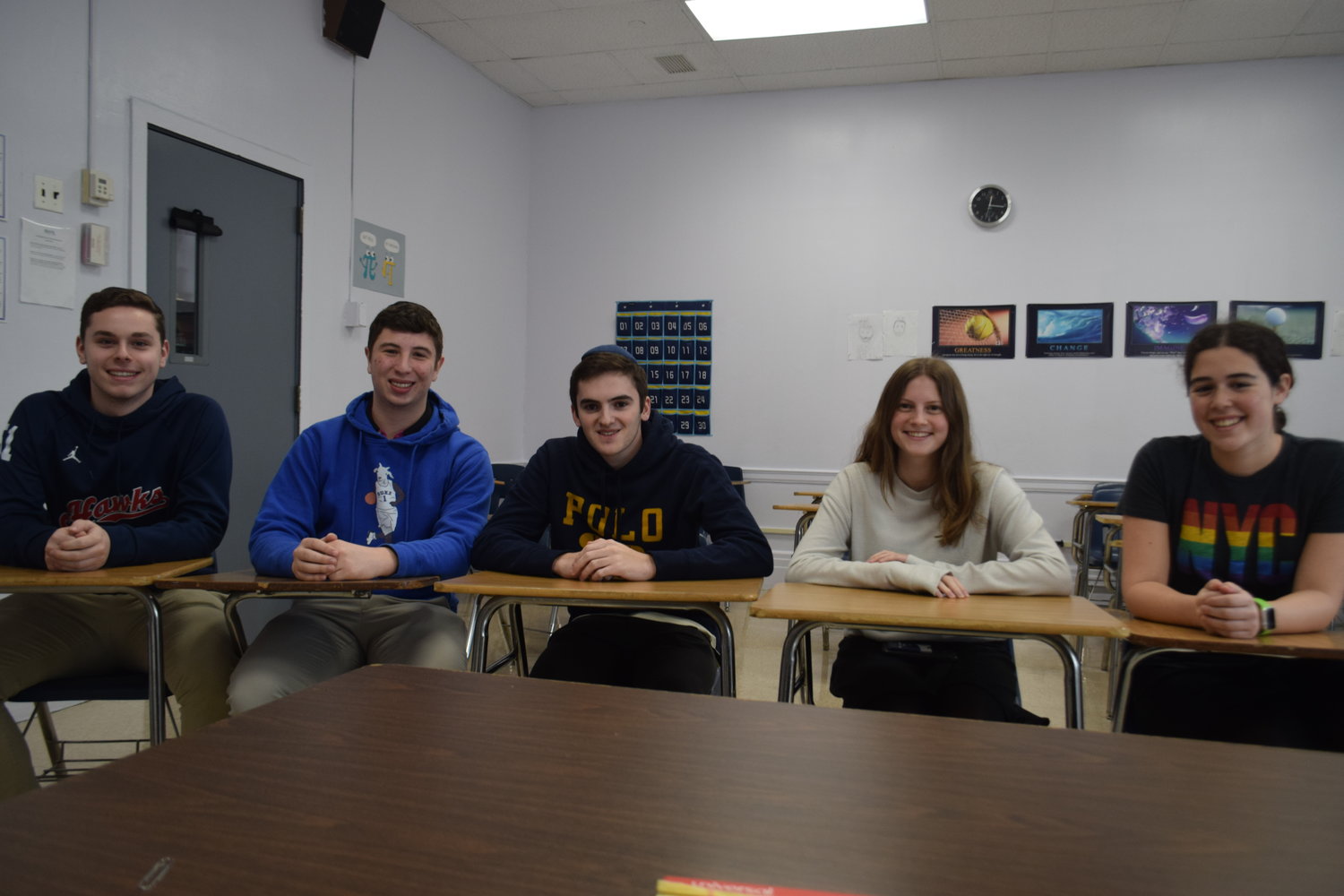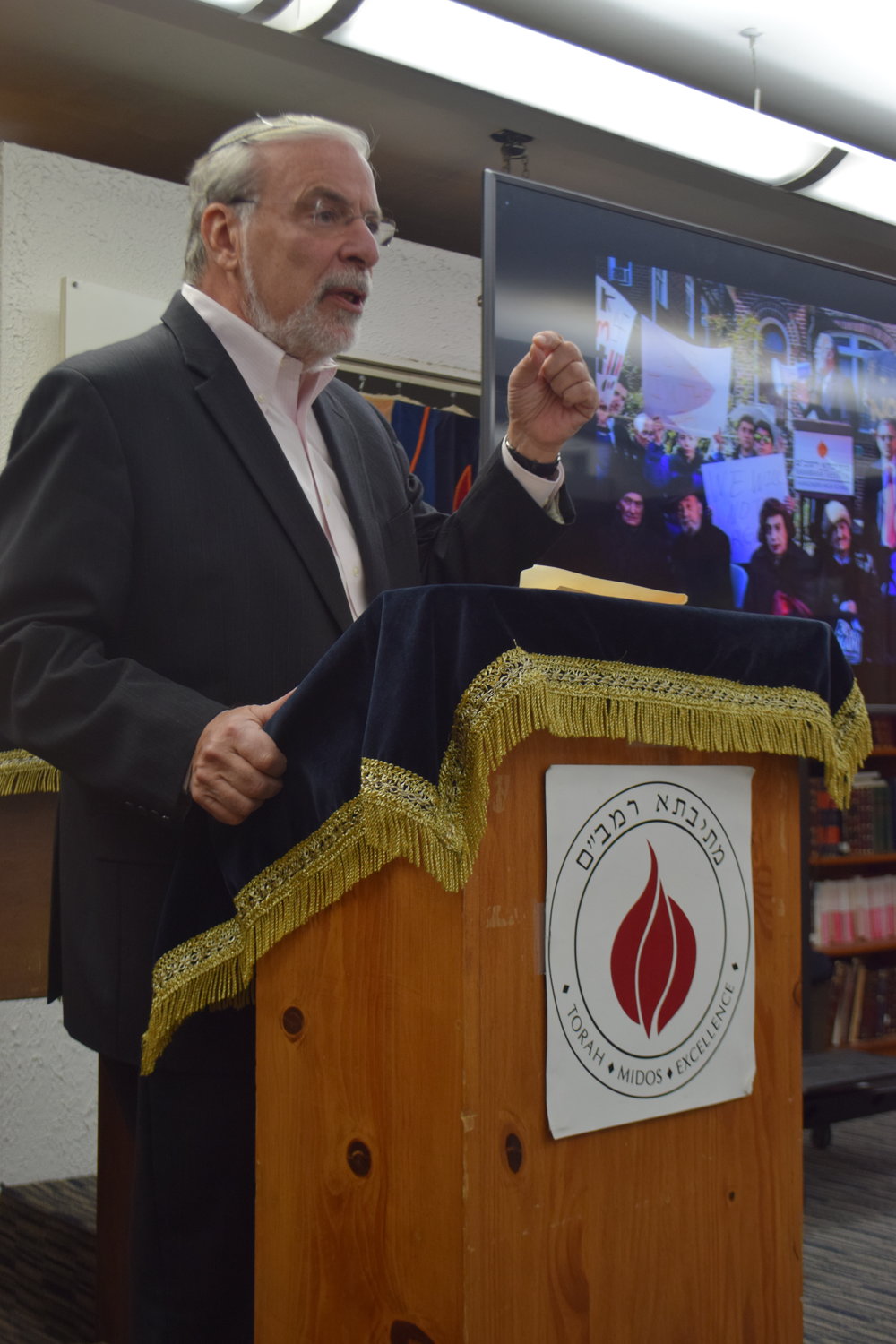Students enter the anti-Semitism battle
Consensus: Be a respectful but firm advocate for the Jewish community
Anti-Semitism is not new, however, in the past few years Jewish people have endured more than half of the 428 hate crimes reported in New York City last year, according to the New York City Police Department and the city had more than 300 anti-Semitic incidents in 2019, according to the Ant-Defamation League’s Center on Extremism.
“We know there are over one million Jews in New York City alone, and a couple hundred thousand of those are Orthodox,” Jonathan Greenblatt, the chief executive of the Anti-Defamation League posted in Twitter, using a term that encompasses Modern Orthodox as well as Hasidic Jews. “They are being singled out in disproportionate numbers to their percentage of the population.”
The metropolitan area has had its share of anti-Semitic incidents from the shooting in Jersey City on Dec. 10, when six people were killed, including one police officer, two Orthodox Jews in the kosher supermarket and an employee and the two assailants. The Monsey Hanukkah stabbing on Dec. 28 that injured five people. In the Five Towns, where there is a substantial observant Jewish population, a man verbally accosted three Jewish people in the North Lawrence Costco on Dec. 8, yelling religious slurs and threatening physical violence.
On Dec. 20, the Herald sat down with six Hebrew Academy of the Five Towns and Rockaway High School seniors and discussed the impact on anti-Semitism on their lives. On the same Thursday, the Herald visited Rambam Mesivta High School and sat with students as former State Assemblyman Dov Hikind from Brooklyn spoke.
The consensus from the HAFTR High students was that they are aware of anti-Semitism, but within the world they inhabit the issues are few and far between. The young woman — Eliana Lazar, Hannah Levine and Molly Vashovsky — noted that girls are less susceptible to being picked on for their dress, which could be perceived more as style than for religious reasons, than Jewish boys or men because of the yarmulke worn on their heads is a much more visible sign that thy are Jewish. Vashovsky said that she worries about her younger brother wearing his yarmulke in the city.
“I have never felt anti-Semitism, going to an all Jewish school,” Levine said, adding that the majority of the people she comes into contact with on a daily basis are Jewish. All the students agreed with that. HAFTR High Principal Naomi Lippman noted that the school does have a “homogenous pupil population” and to expose the students to diverse people and ideas they have brought in speakers ranging from a former white supremacist to a former Israel Defense Forces soldier, and a representative from Stand With Us to offer the students strategies on how to deflect anti-Semitism.
The young men — William Glickman, Ethan Oliner and Josh Melman — said that they have encountered a bit more anti-Semitism. Glickman said when in the city, a few people have stared at him because of the yarmulke. Oliner said that he has heard the “dirty Jew” slur hurled at basketball games he has played in.
If attacked verbally, all said that they would turn away, but if there was physical contact or the person began following them, and it then could become a confrontation calling the police would be at the forefront of their actions. The students noted that most people who are different in skin color or religion have endured slights. “All minorities can relate to bias,” Melman said. Lazar said the educational system has to be changed. “I would never go to a black person and call then the ‘N’ word,” she said.
Along with the Jersey City, Monsey and North Lawrence incidents, There has been the mass shootings in Parkland, Fla., Pittsburgh and Poway, Calif. that have touched the students. “The Jewish community is so tight knit that we could relate to someone we know as they are not that far away or they are in our circle,” Vashovsky said. Oliner said that “thoughts and prayers are fine, but change is needed.” Lazar and Levine said that being 18 they will vote and look to move that change ahead.
Being seniors, the students understand that they could face anti-Semitism in college, however they plan to confront it head on and said that people who show hatred for Jews are uneducated. “It’s hard to change people’s opinions,” Oliner said. “If someone comes up to me and calls me a ‘dirty Jew’ I’m mot concerned,” Levine said. “ I’m Jewish and a good person.” “We have to step up for ourselves,” Glickman said, “if we don’t step forward we can’t save anyone else from anti-Semitism. ”
You can make a difference
Hikind addressed a majority of the Rambam student body for roughly an hour and expressed the sentiment that they can make a difference and noted how their peers have already an impact. Rambam students rallied for several years outside the home
Jackson Heights home of Jakiw Palij, the last-known Nazi war criminal living in the metropolitan area. In 2018, Palij was deported to Germany. “You can make a difference, we have to do it,” he said. “Every person can do unbelievable things.”
Underscoring the rise in anti-Semitic incidents, Hikind said: “We have a situation where everybody is out of control, with numbers never seen before, something is terribly wrong.” He likened it to what occurred in Nazi Germany that began with similar attacks on the Jews and then escalated to the Holocaust. “The real concern I have is good people are silent. “It is the legitimizing of anti-Semitism.”
He called Rambam “a unique school” and told the students “you need to be proud of who we are” as Jews. “He stressed the concept of making a difference. “Your priority should always be the Jewish people,” Hikind said.
Rambam senior Yidi Sprei said “absolutely” Hikind’s words had an impact on him. “With anti-Semitism growing we should not give in and meet it head on,” Sprei said. I’m political so I believe that can be done.”
Sophomore Sam Korn said that Hikind passed some “powerful lessons” and shared one of his own should he have to defend being Jewish. “I would listen respectfully and then I would talk,” Korn said, “but I would not incite violence.”

 65.0°,
Mostly Cloudy
65.0°,
Mostly Cloudy 







